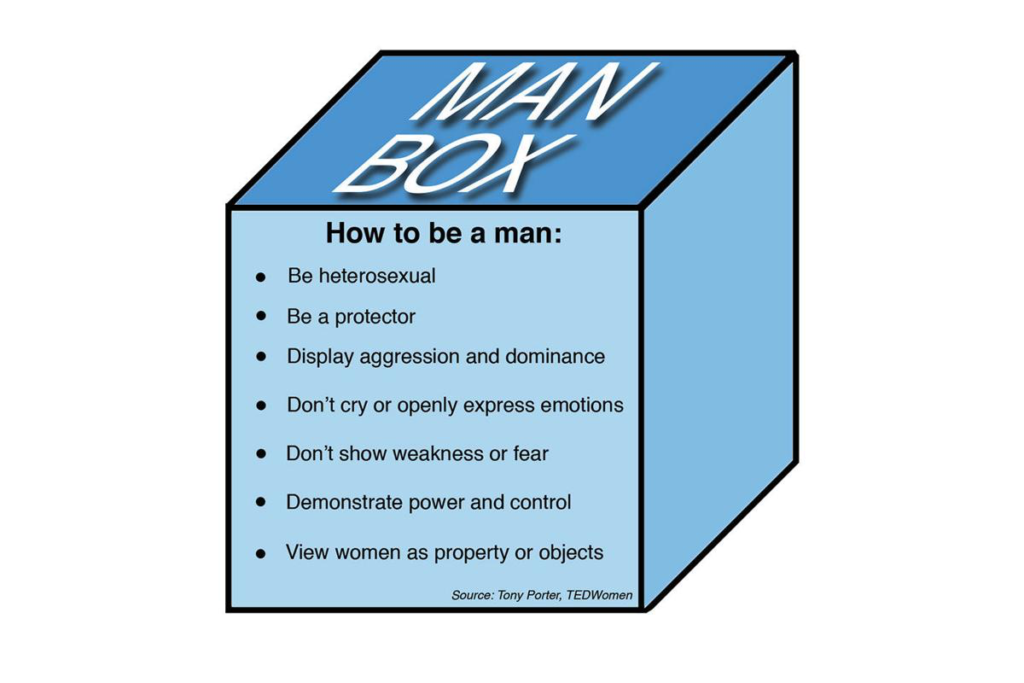Therapy for men is often viewed as a last resort, something that is only done when all other options have been exhausted. However, this view is changing, and more and more men are seeking help from therapists.
This is a good thing, as therapy can be very beneficial for men. In this article, we will explore what therapy is, why it might be needed, and how it can help men achieve their goals.
Contents
Understanding Therapy For Men
Therapy for men is a process that helps men to understand their emotions and how they are expressed. It also assists them in learning new skills to deal with difficult situations, as well as improving their relationships.
Types of Therapy For Men
There are different types of therapy for men. But the most common one is emotion-focused therapy. This type of therapy helps men to understand their emotions and how they are expressed. It also assists them in learning new skills to deal with difficult situations, as well as improving their relationships. It is effective in helping men achieve their goals.
Theory of Emotion-Focused Therapy
The theory behind emotion-focused therapy is that emotions are a natural and necessary part of life. They provide information about our experiences and how we feel about them. Emotions also motivate us to take action. When we understand our emotions, we can use them to help us make decisions, cope with stress, and solve problems.
NOTE: Emotion-focused therapy was first developed in the 1980s by Dr. Les Greenberg and Dr. Jean Watson. At that time, it was called experiential therapy. The name was changed to emotion-focused therapy in the 1990s.
History And Development
The history and development of therapy for men are interesting and complex. The first recorded use of the term “therapy for men” was in 1975 by Dr. Carl Braaten. At that time, there were very few resources available on the topic. In the early days, most of the research on therapy for men was focused on helping men who had been diagnosed with mental health disorders.
In the late 1990s and early 2000s, there was a shift in the focus of therapy for men. Researchers began to look at how therapy could be used to help healthy men deal with everyday problems. This new focus was inspired by the work of Dr. William Pollack. He wrote the book Real Boys: Rescuing Our Sons from the Myths of Boyhood.
In recent years, there has been a growing interest in therapy for men. This is because more and more men are seeking help for problems such as depression, anxiety, and relationship issues.
Unfolding Therapy For Men
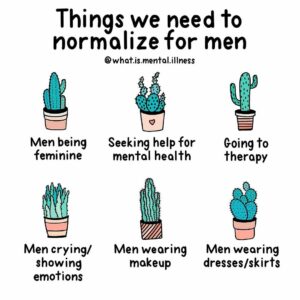
The process of unfolding therapy for men is gradual and individualized. It begins with the therapist getting to know the client and understanding his unique situation. The therapist then works with the client to create a plan that will address his specific needs.
Who Can It Help
Therapy for men can help anyone willing to participate in it. However, it is particularly beneficial for men who have difficulty expressing their emotions.
Issues That It Addresses
The issues that therapy for men can address are varied and extensive. Some of the most common ones include depression, anxiety, anger management, relationship problems, and addiction.
How Does It Work
Therapy for men typically involves a combination of talk therapy and skills training. The therapist will work with the client to identify the specific skills that he needs to work on. He will then provide instructions and guidance on how to practice these skills in the real world.
The therapist will also help the client to identify and manage stressors in his life. Then they work with the client to set goals and create a plan for achieving them.
Furthermore, the therapist will periodically check in with the client to see how he is progressing. They will also provide support and encouragement throughout the process.
Techniques Used In Therapy For Men
The techniques that are used in therapy vary depending on the type of therapy that is being used. However, some of the most common ones include cognitive behavioral therapy, psychoeducational, and interpersonal therapy.
- Cognitive-behavioral therapy is a type of therapy that helps people to change the way that they think about and react to situations. It is often helpful to treat anxiety and depression.
- Psychoeducational techniques help people learn about their emotions and how to deal with them healthily.
- Interpersonal therapy is often used to treat relationship problems. It can also help people who have difficulty expressing their emotions.
How It Helps
These different techniques help men in the following ways:
- exploring emotions and how they are expressed
- learning new skills to deal with difficult situations
- change negative thought patterns
- improving personal relationships
- resolving conflict
Evaluating Therapy For Men
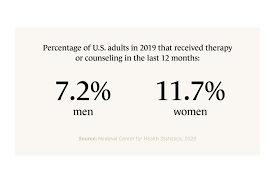
You can evaluate the effectiveness of therapy in many different ways. However, some of the most common methods include:
- self-report scales
- behavioral observations
- therapist ratings
- peer ratings
When evaluating therapy for men, it is important to consider the therapist’s training and experience. It is also important to look at the type of therapy that is being used and whether it is a good fit for the client.
Benefits of Therapy For Men
There are many benefits of therapy for men. However, some of the most common ones include:
- learning how to deal with emotions in a healthy way
- improving relationships with others
- gaining new skills that can be helpful in the real world
- reducing stress levels
- improving mental health
Skills That Men Learn
In therapy for men, men typically learn a variety of skills that can be helpful in the real world. Moreover, some of the most common skills include:
- communication skills
- problem-solving skills
- assertiveness skills
- coping skills
- stress management skills
Personal Gains That Men Make
Men who participate in therapy often report making several personal gains. However, some of the most common ones include:
- gaining a better understanding of themselves and their emotions
- learning new skills to deal with difficult situations
- improving relationships with others
- reducing stress levels
- improving mental health
Limitations of Therapy For Men
Therapy for men is not right for everyone. One must consider its share of limitations. However, some of these include:
- the cost of therapy
- the time commitment required
- the fact that it may not have insurance coverage
Why Consider It
Despite the limitations, there are several reasons why therapy can be beneficial. However, some of the most common ones include:
- learning how to deal with emotions in a healthy way
- improving relationships with others
- gaining new skills handy in the real world
- reducing stress levels
- improving mental health
If you are considering therapy, it is important to talk to a professional about your options.
Finding a Therapist
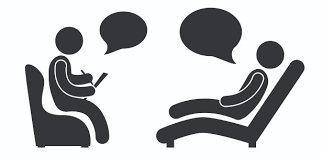
If you are considering therapy for men, the best place to start is by talking to a professional. However, several different professionals can provide this type of therapy, including:
- psychologists
- counselors
- social workers
- psychiatrists
How To Find One
When you are looking for a therapist, it is important to find one that is a good fit for you. Moreover, there are several different ways to find a therapist, including:
- asking your doctor for a referral
- searching online directories
- checking with your insurance company
What To Look For In A Therapist
If you are considering therapy, there are a few things that you should look for in a therapist. However, some of the most important things include:
- the therapist’s training and experience
- the type of therapy they use
- whether the therapist is right for you
What To Look Out For In Therapy
When looking for therapy, it is important to find a program that is cut out for you. There are several different things to consider when choosing a program, including:
- the cost
- the location
- the time commitment on your part
- the type of therapy that they use/offer
NOTE: Many programs specialize in this therapy. You can find these programs at community centers, hospitals, and schools. The best way to find a program that is right for you is to do your research and ask around. There are also many resources available online.
Normalizing Therapy For Men
Men need to understand that therapy is not just for women. Therapy can be very beneficial for men.
Why Men Won’t Go To Therapy
There are several reasons why men may be hesitant to go to therapy. Some of the most common ones include:
- the cost
- the time commitment required
- the stigma around therapy
The Role of Toxic Masculinity
One of the biggest reasons why men may be hesitant to seek help is because of the stigma around therapy. Toxic masculinity is a big part of this stigma. Toxic masculinity is a term that refers to the harmful beliefs and attitudes that men are supposed to uphold. These beliefs include:
- men are superior to women
- they should be in control at all times
- they should be tough and emotionless
These beliefs can lead to several problems, including:
- violence
- discrimination
- abuse
The Impact of Toxic Masculinity
Toxic masculinity can have several negative impacts on men. However, some of the most common ones include:
- mental health problems
- substance abuse
- physical health problems
Role of Therapy In Toxic Masculinity
Therapy can be very beneficial for men who are struggling with toxic masculinity. In therapy, men can learn how to deal with their emotions healthily. They can also learn how to develop healthier relationships with others.
Hearing From Experts
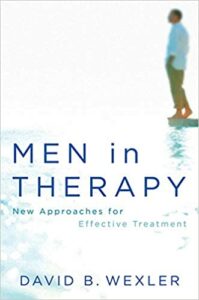
If you are considering therapy, it can be helpful to hear from experts about their experiences with this type of therapy. However, here are a few quotes from experts:
- “Therapy for men can be an incredibly powerful experience. It can help men to understand themselves and their emotions in a new way.” – Dr. John Grey
- “Therapy for men can be an incredibly rewarding experience. It can help men to understand themselves and their emotions in a new way.” – Dr. David Wexler
- “Therapy for men is a safe place to explore the parts of yourself that you may be afraid to look at. It is a place to learn new skills and gain new insights.” – Dr. Michael Aaronson
Case Study
Joe is a 38-year-old man who has been married for six years. He is struggling with several issues, including anger and stress. Joe has heard that therapy can be helpful, and he decides to talk to a therapist about his options.
After meeting with a few different therapists, Joe decides to start therapy with Dr. John Grey. Dr. Grey uses an emotion-focused approach to therapy, which is a good fit for Joe. Over several months, Joe learns how to deal with his emotions healthily.
He also learns how to communicate better with his wife and solve problems more effectively. As a result of therapy, Joe’s marriage improves significantly.
Resources
If you are considering therapy, several resources can be helpful. However, some of these include:
- The American Psychological Association: The APA provides information about therapy for men and how to find a therapist.
- The National Association for Men’s Counseling: This organization provides information about therapy for men and how to find a therapist.
Conclusion
Therapy for men can be an incredibly beneficial experience. It can help men to understand themselves and their emotions in a new way. If you are considering this therapy, it is important to talk to a professional about your options. There are several different types of therapies available for men. And it is important to find the right one for you.
A Word From Therapy Mantra
Your mental health — Your psychological, emotional, and social well-being — has an impact on every aspect of your life. Positive mental health essentially allows you to effectively deal with life’s everyday challenges.
At TherapyMantra, we have a team of therapists who provide affordable online therapy to assist you with issues such as depression, anxiety, stress, workplace Issues, addiction, relationship, OCD, LGBTQ, and PTSD. You can book a free therapy or download our free Android or iOS app.
